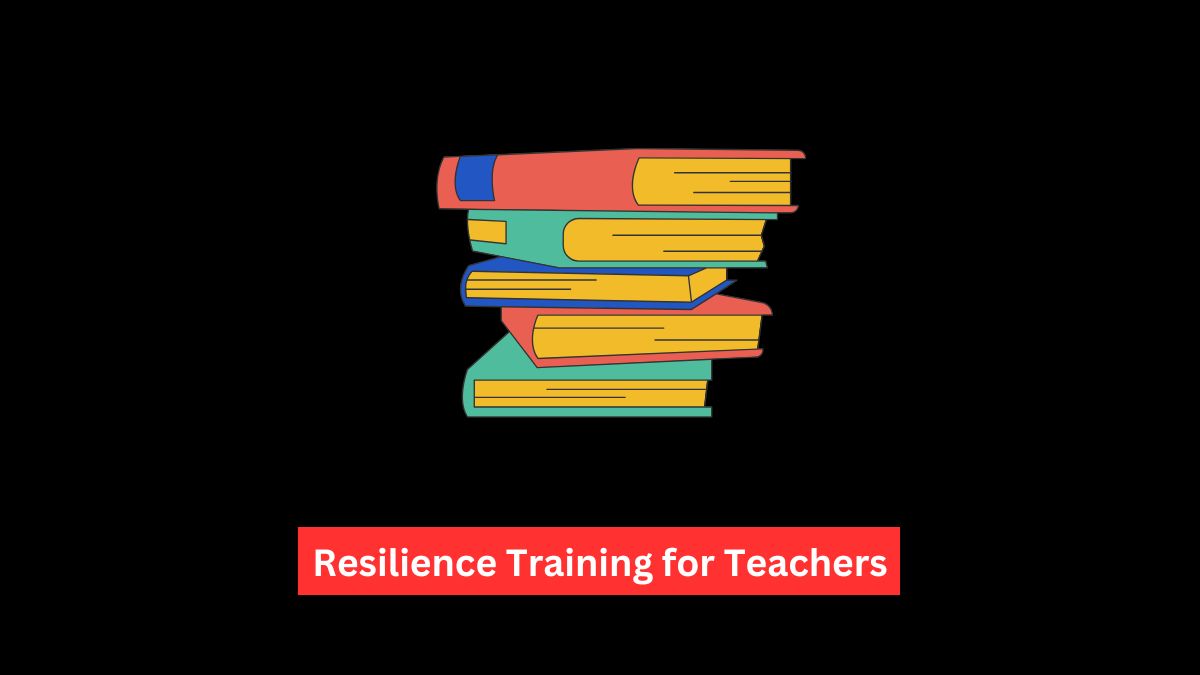Resilience training for teachers has emerged as a vital component of professional development. Educators face numerous challenges, from managing diverse student needs to navigating administrative demands. This article explores the significance of resilience training, key strategies, and the benefits it offers to teachers and, ultimately, to their students.
Understanding Resilience in Education
What is Resilience?
Resilience refers to the ability to adapt and bounce back from adversity, stress, or challenges. In the context of education, it encompasses teachers’ capacity to cope with the pressures of their roles, maintain a positive outlook, and continue to provide effective instruction despite difficulties.
Why is Resilience Important for Teachers?
Teachers play a crucial role in shaping the educational experiences of their students. A resilient teacher is more likely to:
- Maintain Well-Being: Resilience helps educators manage stress and avoid burnout, leading to better mental health.
- Create a Positive Learning Environment: Resilient teachers model coping strategies and positive behavior, fostering a supportive classroom atmosphere.
- Enhance Student Outcomes: When teachers are resilient, they are better equipped to engage with students and respond to their needs, ultimately leading to improved academic performance and emotional well-being.
The Need for Resilience Training
Increasing Stressors in Education
The teaching profession is inherently demanding. Factors contributing to teacher stress include:
- High Workload: Teachers often juggle lesson planning, grading, and administrative tasks, leading to long hours and fatigue.
- Emotional Labor: Supporting students’ emotional and social needs can be draining, especially in challenging classroom environments.
- Changing Policies: Frequent changes in educational policies and standards can create uncertainty and pressure.
Given these challenges, resilience training becomes essential for equipping teachers with the tools to manage stress effectively.
Read Also:- Impact of Parental Engagement on Student Success
Strategies for Resilience Training
1. Mindfulness Practices
Mindfulness involves being present in the moment and can help teachers reduce stress and improve focus. Strategies include:
- Meditation: Short, daily meditation sessions can enhance emotional regulation and reduce anxiety.
- Deep Breathing Exercises: Simple breathing techniques can help teachers regain composure during stressful situations.
2. Professional Development Workshops
Workshops focused on resilience can provide teachers with practical strategies and tools. Topics may include:
- Stress Management Techniques: Workshops that teach educators how to recognize stressors and employ coping strategies.
- Emotional Intelligence: Training that enhances teachers’ ability to understand and manage their emotions and those of their students.
3. Building Supportive Networks
Creating a network of support among colleagues can enhance resilience. Strategies include:
- Peer Mentorship: Pairing experienced teachers with newer educators fosters collaboration and provides emotional support.
- Regular Check-Ins: Establishing regular meetings for teachers to share experiences and strategies can help build a sense of community.
Read Also:- Hybrid Learning Engagement Techniques
4. Self-Care Practices
Encouraging teachers to prioritize self-care is crucial for resilience. This may involve:
- Physical Activity: Regular exercise can improve mood and reduce stress.
- Hobbies and Interests: Engaging in activities outside of work can provide a much-needed mental break.
5. Positive Psychology Techniques
Incorporating elements of positive psychology can enhance teachers’ resilience. Strategies include:
- Gratitude Journals: Encouraging teachers to keep a journal of things they are grateful for can foster a positive mindset.
- Strengths-Based Approaches: Focusing on individual strengths can empower teachers and boost their confidence.
Benefits of Resilience Training for Teachers
1. Improved Mental Health
Resilience training equips teachers with the skills to manage stress and anxiety, leading to improved overall mental health. Educators who practice resilience are less likely to experience burnout and emotional exhaustion.
2. Enhanced Classroom Performance
Resilient teachers are more engaged and effective in the classroom. They can create a positive learning environment, maintain high expectations for their students, and adapt to challenges with greater ease.
3. Stronger Relationships with Students
Teachers who model resilience demonstrate coping strategies to their students, promoting a culture of resilience within the classroom. This can lead to stronger teacher-student relationships and improved student behavior and performance.
4. Increased Job Satisfaction
Teachers who participate in resilience training often report higher levels of job satisfaction. When educators feel equipped to handle challenges, they are more likely to remain committed to their profession.
5. Positive School Culture
When teachers prioritize resilience, it contributes to a positive school culture. Resilient educators can collaborate effectively, support each other, and create a more cohesive and supportive environment for students.
Read Also:- Data Privacy in Educational Technology
Conclusion
Resilience training for teachers is essential in today’s educational landscape. By equipping educators with the skills to manage stress, build supportive networks, and prioritize self-care, schools can foster a more resilient workforce. This not only benefits teachers’ mental health and job satisfaction but also enhances the overall learning environment for students. Investing in resilience training is an investment in the future of education.
FAQs
What is resilience training for teachers?
Resilience training for teachers involves providing strategies and tools to help educators manage stress, adapt to challenges, and maintain a positive outlook in their professional roles.
Why is resilience important in education?
Resilience is important because it helps teachers cope with the demands of their job, leading to improved mental health, better classroom performance, and stronger relationships with students.
What strategies are included in resilience training?
Strategies may include mindfulness practices, professional development workshops, building supportive networks, self-care practices, and positive psychology techniques.
How can resilience training benefit students?
When teachers are resilient, they create a more positive learning environment, model coping strategies, and provide better support for students, leading to improved academic outcomes.
How can schools implement resilience training?
Schools can implement resilience training through workshops, peer mentorship programs, regular check-ins, and by promoting self-care practices among teachers.

